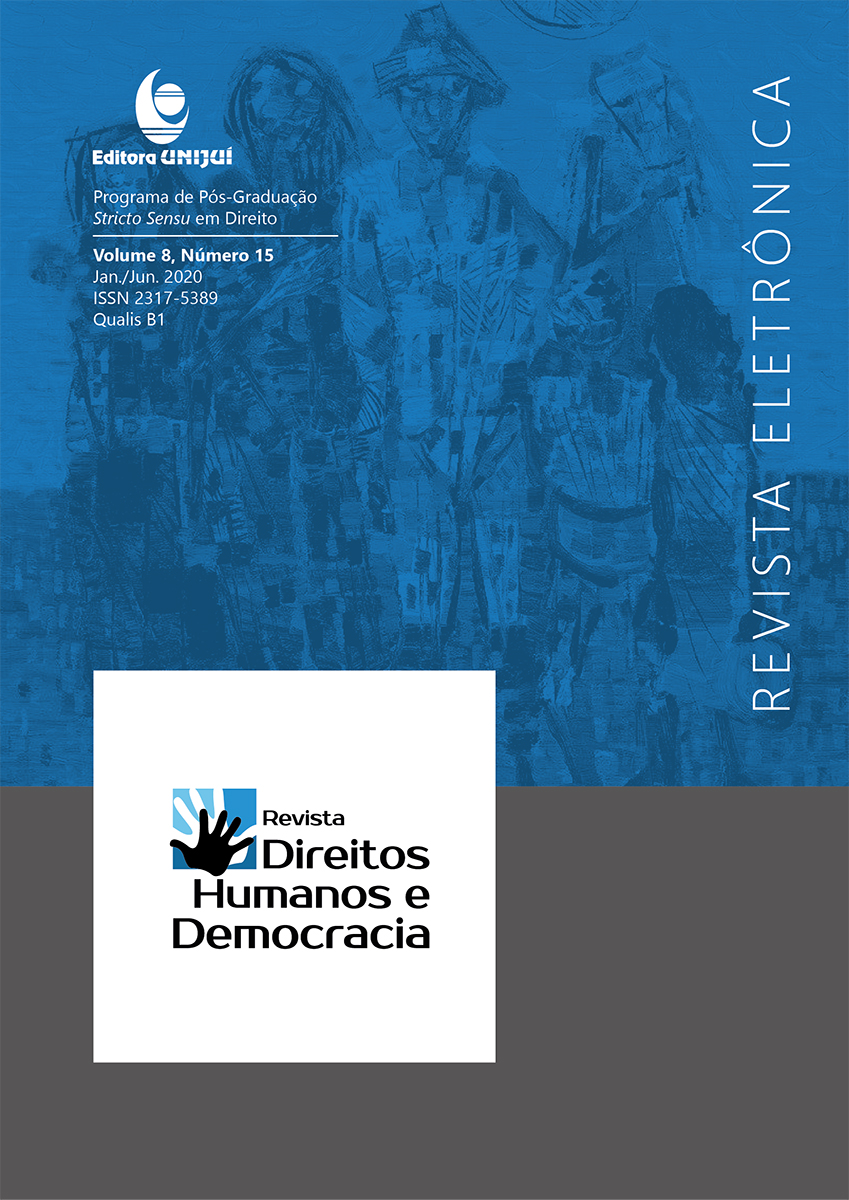UM DEBATE METODOLÓGICO SOBRE A ACEITAÇÃO DAS PRÁTICAS DOS DIREITOS HUMANOS EM FINNIS A PARTIR DA CRÍTICA DE BEITZ ÀS TEORIAS DA LEI NATURAL
DOI:
https://doi.org/10.21527/2317-5389.2020.15.236-254Keywords:
John Finnis, methodology, natural law, central case, practicesAbstract
This paper aims to present how John Finnis' methodology of natural law provides support for explaining the incorporation of human rights as practices without undermining the critical function that a theory of natural law must play in the face of institutions. The first part of the paper exposes the methodology and assumptions of natural law relevant to the theme, namely, the central case method, acceptance of the normativity of practices and rights, although deviant, contemporary descriptive and evaluative tendency to incorporate practices, and the distinction between derivation by conclusion and determinatio. In the second part, Charles Beitz's critiques of naturalistic theories are presented in order to present the topics relevant to the problem in question. Finally, we apply the methodological considerations made in the first part, in order to explain how a theory of natural law can explain the incorporation of human rights practices, especially regarding the use of analogy and central case.
Downloads
Published
How to Cite
Issue
Section
License
By publishing in the Revista Direitos Humanos e Democracia, authors agree to the following terms:
Articles are licensed under the Creative Commons Atribuição 4.0 Internacional (CC BY 4.0), which allows:
Share — copy and redistribute the material in any medium or format;
Adapt — remix, transform, and build upon the material for any purpose, including commercial use.
These permissions are irrevocable, provided the following terms are respected:
Attribution — authors must be properly credited, with a link to the license and indication of any modifications made;
No additional restrictions — no legal or technological measures may be applied that restrict the use permitted by the license.
Notices:
The license does not apply to elements in the public domain or covered by legal exceptions.
The license does not grant all rights required for specific uses (e.g., image rights, privacy, or moral rights).
The journal is not responsible for opinions expressed in the articles, which remain the sole responsibility of the authors. The Editor, with the support of the Editorial Committee, reserves the right to suggest or request modifications when necessary.
Only original scientific articles presenting research results of interest, not previously published or simultaneously submitted to another journal with the same purpose, will be accepted.
References to trademarks or specific products are intended solely for identification purposes and do not imply any promotional endorsement by the authors or the journal.
License Agreement: Authors retain copyright over their articles and grant the Revista Direitos Humanos e Democracia the right of first publication.













